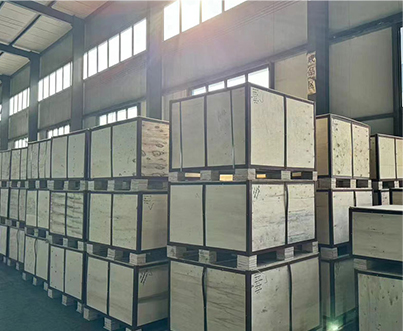
- Call Us
- +8618633052223
- njhdvlz@163.com
Ago . 21, 2024 02:07 Back to list
Top Suppliers of Mechanical Butterfly Valves for Industrial Applications
Choosing a Mechanical Butterfly Valve Supplier Key Considerations
When it comes to industrial applications, butterfly valves are essential components widely used for regulating flow in various systems. Mechanical butterfly valves operate by using a rotating disc to control the flow of fluids, making them efficient and reliable. However, selecting the right supplier for mechanical butterfly valves can significantly impact the performance and longevity of your applications. This article outlines key considerations to keep in mind when choosing a mechanical butterfly valve supplier.
1. Product Quality and Standards
The first and foremost criterion when selecting a mechanical butterfly valve supplier is the quality of their products. High-quality valves ensure durability, reliability, and efficiency. Look for suppliers who adhere to international quality standards such as ISO 9001. These certifications indicate that the supplier has implemented rigorous quality management systems. Consider also whether their products meet specific industry standards relevant to your application, such as API, ASME, or ASTM.
Another critical factor is the variety of valves the supplier offers. Depending on your industry, you may require different types of mechanical butterfly valves. Some applications may need resilient seated valves, while others might require metal seated options. A reputable supplier should provide a comprehensive range of products to meet diverse needs and facilitate seamless integration into your systems. This versatility demonstrates the supplier's capability and understanding of different industrial applications.
3. Customization Options
In many industries, one-size-fits-all solutions are not viable. Therefore, look for suppliers that offer customization options. This might include variations in size, material, and valve design to meet specific operational needs. A supplier who provides tailored solutions signifies a commitment to customer satisfaction and a deep understanding of the intricacies involved in different applications.
mechanical butterfly valve supplier

4. Technical Expertise and Support
A reliable supplier should not only sell products but also offer expert guidance and technical support. This is particularly important if your applications have specialized requirements or if you face any challenges during installation and operation. Assess the supplier's technical team and their ability to provide advice on product selection, system design, and troubleshooting. A supplier with a strong technical support system can save you time and resources in the long run.
5. Competitive Pricing and Value-added Services
Pricing is always a consideration when selecting suppliers, but it shouldn’t be the sole deciding factor. Evaluate the overall value proposition offered by the supplier. Look for those who provide competitive pricing along with value-added services such as extended warranties, maintenance programs, or training for your staff. Such services can help maximize the lifespan of your butterfly valves and optimize your operational efficiency.
6. Customer Reviews and References
Finally, it is crucial to consider the supplier’s reputation in the industry. Look for customer reviews, testimonials, and case studies to understand the experiences of other clients. Additionally, ask for references from companies within your industry who have previously worked with the supplier. Positive feedback and a proven track record can instill confidence in your purchasing decision.
Conclusion
Choosing the right mechanical butterfly valve supplier is a crucial decision that can impact the efficiency, safety, and sustainability of your operations. By considering product quality, range, customization options, technical expertise, pricing, and reputation, you can make a well-informed choice tailored to your specific needs. Investing time and effort into selecting a reliable supplier will pay off in the long run with enhanced operational effectiveness and peace of mind.
-
Double Flanged Short Pattern Butterfly Valve | Compact, Efficient Flow
NewsAug.01,2025
-
Precise 3-Inch Butterfly Valve Dimensions | Durable Flow
NewsJul.31,2025
-
3 Butterfly Valve Dimensions | GPT-4 Turbo Precision Specs
NewsJul.31,2025
-
Stainless Steel Sanitary Butterfly Valve for Hygienic Flow Control
NewsJul.30,2025
-
High-Performance Groove Butterfly Valve for Easy Installation
NewsJul.30,2025
-
High-Quality 2 Inch Butterfly Valve for Precise Flow Control
NewsJul.29,2025